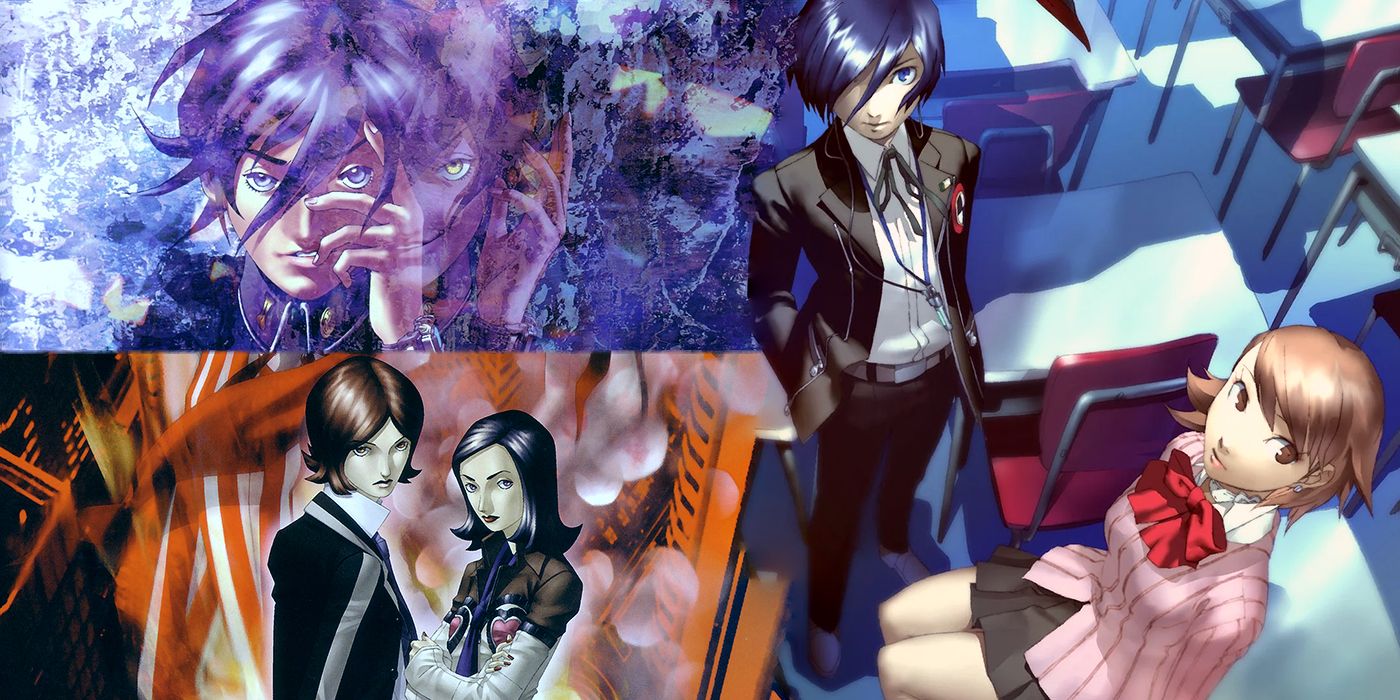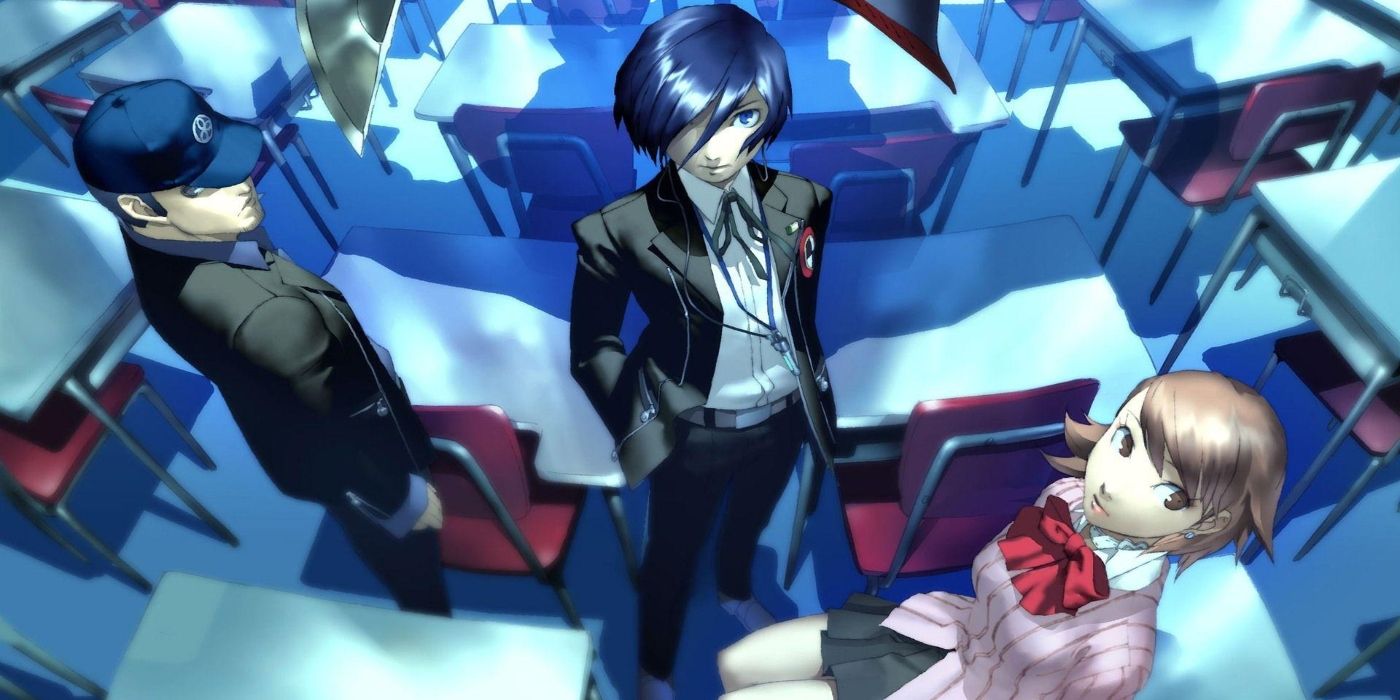Why Fans Might Want to Skip Straight to Persona 3 | Game Rant

As the fifth game has solidified the franchise's worldwide appeal, so many new fans are jumping into the Persona series for the first time. After the critical and commercial successes of Persona 5/Persona 5 Royal, alongside the surprising success of Persona 4 Golden on PC, the Atlus JRPG series has never been more popular. Luckily, the series largely functions like Final Fantasy, in that every mainline entry is mostly different from one another. Even still, many new players wanting to go back and play the older games should realistically only go back as far as Persona 3, since previous efforts don't exactly run parallel with the modern series' offering.
Discouraging fans who want to discover the Persona series from the very beginning isn't an exercise in gatekeeping, but rather a warning of a very different game. The very first Persona game, the Persona 2 duology, as well as the remakes of each, are very different from the modern, post-Persona 3 games. The first two (technically three) Persona games are extremely different from a thematic and gameplay standpoint, and a lot of the modern conveniences of Persona aren't found in the first two. Most notably, things like the social sim/JRPG dichotomy didn't exist in the first two games. Persona 1 and Persona 2 are traditional 90s JRPGs in their purist forms.

Shin Megami Tensei: Persona, or otherwise known as Revelations: Persona, initially released for the first PlayStation way back in 1996. However, in the U.S. version, the game was overhauled in questionable ways through a very strange localization process. As a result, the PSP remake of the first Persona game is arguably the best way to play, and even then, the game is still very dated to play compared to any entry released after Persona 3. The first Persona game is set up like any other, high schoolers attain magical powers via the manifestation of their psyche to fight demons, though it's missing any of the work/life balance mechanics found in later games.
The first Persona game is largely responsible for establishing the overarching elements of the series as a whole. Contextualizing themes of Carl Jung's philosophy of the "persona" into a metaphysical world of humanity's true nature, battling the inner demons of society in the "ideal" world is all there in the first game. However, everything about the gameplay and story plays out in a fairly different manner.
There's no social simulator-like elements other than walking around areas (from an uncomfortably close first-person perspective) outside of dungeons. Battles function on a strategic grid that involves positioning and setting up attacks all in one turn, rather than the Final Fantasy/Dragon Quest-style battle system. Pair that with a story which despite having genuinely interesting character moments in the latter half, has an extremely slow an uninteresting start that demands hardcore investment. Going back to the first Persona game's remake, and especially so with the original release, should realistically only be reserved for hardcore fans curious about the series' history.

A similar notion applies to the Persona 2 duology, Persona 2: Innocent Sin and Persona 2: Eternal Punishment. These two games aren't necessarily prequels and sequels of one another, but are rather more subtly connected as one cohesive story. Playing through the most modern take of the Persona 2 duology already puts players at a disadvantage; Persona 2: Innocent Sin's PSP remake was released in the U.S., but the Eternal Punishment PSP remake was never localized due to "unusual circumstances," according to Atlus' Nick Maragos. As a result, playing the duology is hard enough, forcing players to play the second game's original 2000 release version.
The Persona 2 duology is notable narratively, but is just as flawed as the first Persona game in other aspects. Innocent Sin and Eternal Punishment truly hone in on the specific character development of shadows and true selves, story elements evident in more modern games like Persona 4 Golden. However, that comes at a steep price of the overarching narrative, which is frankly insane by modern standards.
The world of personas and the "collective unconscious" is introduced in its most obscene form in Persona 2, shepherded by a Kefka-like villain who's ironically named Joker. The idea behind Persona 2's strange world is the concept of rumors becoming "true," manifesting in chaos with enemies ranging from lunatic Nazis and the "Fuhrer," to aliens invading from outer space. In short, the main plot is crazy. Other than story, the game also modernizes the first game's battle system in some regards, like fusion spells and the removal of grid-based battle mechanics. Despite all of that, both Persona 2 games are very old-school JRPGs with some really strange streaks.

Fans of the modern series really shouldn't consider going back any further than Persona 3 if they want a gameplay experience similar to Persona 4/Persona 5. Both original games are still very closely related to the Shin Megami Tensei series, and because of that, are far different in thematic tone and gameplay. The core aspects of Persona are certainly there, but these games are comparatively very experimental with mechanics compared to the innovations and staples implemented in Persona 3. Even Persona 3 is tough to go back to compared to later entries, but the first two Persona games are vastly different compared to every game released since Persona 3.
That being said, hardcore fans of the series should certainly give the first few games a try if they're curious about the history of Persona. As a general warning, though, fans should ideally be die-hard JRPG or Persona fans, otherwise fans might find the first few Persona incredibly difficult to enjoy. A combination of untethered ambitions, alongside dated JRPG mechanics, make Persona, Persona 2: Innocent Sin, and Persona 2: Eternal Punishment very hard to play in 2021. Telling interested players to skip to Persona 3 as the starting point for the franchise is a relatively valid notion.

Post a Comment